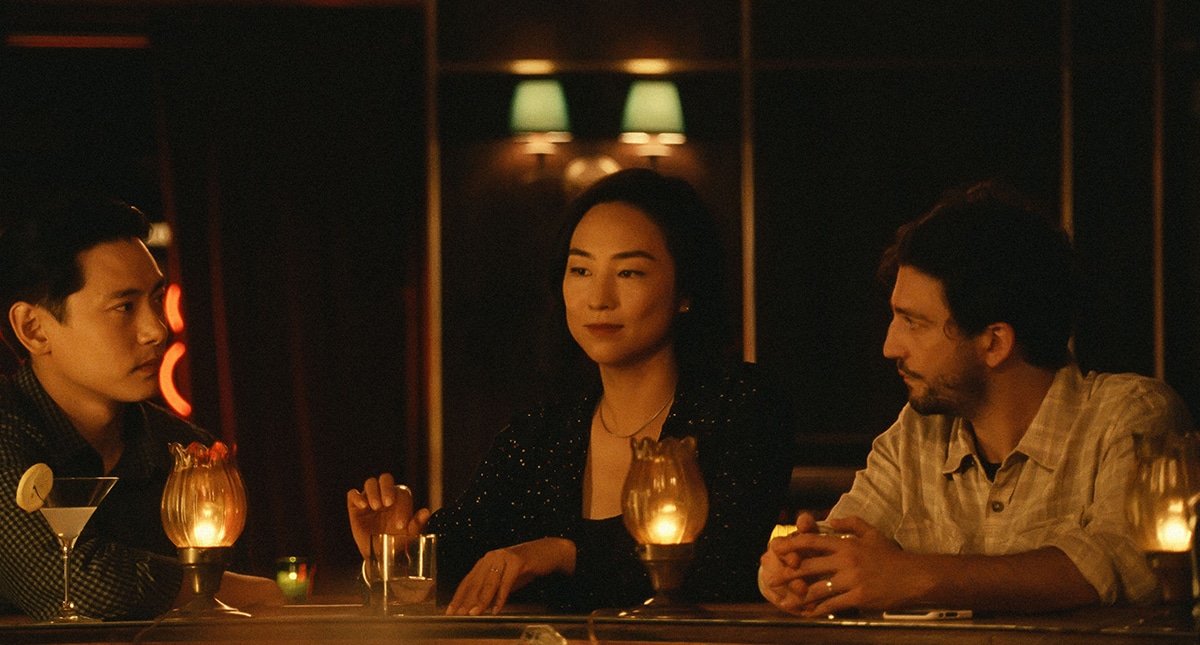These days, with my overcrowded Google calendar and the convenience of streaming services, I find myself (somewhat shamefully) watching movies and shows on my “To Watch” list in approximately 10-minute increments throughout a week. It’s the only way I’m able to get through all the things I want to watch!! I think to myself sheepishly as I have Killers of the Flower Moon on while brushing my teeth (laptop propped on my bathroom counter), inhaling lunch between Zoom calls, or combing my hair post-shower. But every once in a while, I’ll come across something that pulls me in so deeply that I just can’t get myself to press pause. And today, that something, was the movie Past Lives.
At first glance, Past Lives (written and directed by Celine Song) is a slice-of-life love story between Nora, an achievement-oriented Korean American playwright (played by Greta Lee) and Hae Sung, an unassuming Korean engineer (played by Teo Yoo). Their courtship begins in South Korea at age 12 as childhood sweethearts and ends with them forever linked, yet worlds apart: Nora in New York with her husband Arthur and Hae Sung back to Korea.
As a sucker for realistic romance, I was entranced by their chemistry alone, but what makes Past Lives such a remarkable film to me is Song’s nuanced, ordinary, and heart-wrenching rendering of the immigrant, bi-cultural experience. Since most media I come across still doesn’t adequately represent or include what it’s like to be first or second gen, I found myself swelling at the smallest of moments. The glitches during Nora and Hae Sung’s Skype calls reminded me of the awkward pauses (or talking too loudly) during my video chats with family. Nora saying, “I only speak Korean with you and my mom” when Hae Sung jokes that her Korean is rusty, echoed my extremely short list of people who I’m able to speak in Spanish with regularly. But what resonated most was watching Nora’s commitment to building her life in New York despite profound personal sacrifice.
Towards the end of Past Lives, Nora’s husband Arthur insinuates his fear that Nora will leave him for Hae Sung, and Nora says, “Do you even know me? I’m not going to miss my rehearsals for some dude.” I felt a tingle in my spine in recognition: How many times have I said something like that to myself? When Nora ends communication with Hae Sung after months of Skyping, ultimately recognizing that her feelings for him are getting in the way of her pursuits, she says to him, “I want to accomplish something here. I want to commit to my life here, but I’m sitting around looking up flights to Seoul instead.” In defiance of her true desires (if she even is in tune with what those are), she does what she deems necessary: she breaks her own heart.
Watching my parents sacrifice themselves to build a life in the United States in which my brother and I could succeed, left me with no other option but to fight for that success, no matter the cost. My parents are from Quito, Ecuador, and as young adults unexpectedly immigrated to the United States as political exiles with few resources and little understanding of the English language. After years of surviving, they eventually had me and my brother. A large part of our childhood involved packing up all our belongings into cardboard boxes and U-hauling across the country every six months to a year in pursuit of building my dad’s career from scratch. The mantra “do whatever it takes” feels as much a part of me as my red hair and freckles.
It is something I am slowly growing out of, but for so long I’ve equated falling in love with losing control. I feel it every time: the moment I notice myself being willing to shirk my to-do list to spend more time *cuddling*, my hija-de-inmigrantes-alarm-bells go off: Are you starting to lose your grip? Becoming somebody who is willing to settle? Will this relationship get in the way of your pursuits?

Because the goal has always been: achieve as much as you can in as many ways as you can. Hustle. Work harder than anyone else. Make a name for yourself. Make your familia proud. Buy Mami a home. Be the famous artist she always wanted to be but didn’t get to. You are a strong, financially independent woman. You’ll never move for a man. You’ll never sacrifice your goals for a romantic relationship. It doesn’t really matter if that might actually bring you joy.
The first time I cried while watching this movie was when Nora was on the phone with her mom for 57 minutes and counting, scrolling through Facebook and looking up people they once knew to gossip about them. The last time I cried was in the final moments of the film, when Nora finally lets herself fall into Arthur’s arms and weep. It’s the thing she stopped doing shortly after immigrating because she realized that when she cried, “nobody cared.”
Nora’s story reminded me that there is something to grieve and rejoice in the paths I choose not to take. Maybe, at its core, Past Lives isn’t a love story. Maybe instead, it is a meditation on sacrifice. Or maybe in many ways, those are one in the same?

